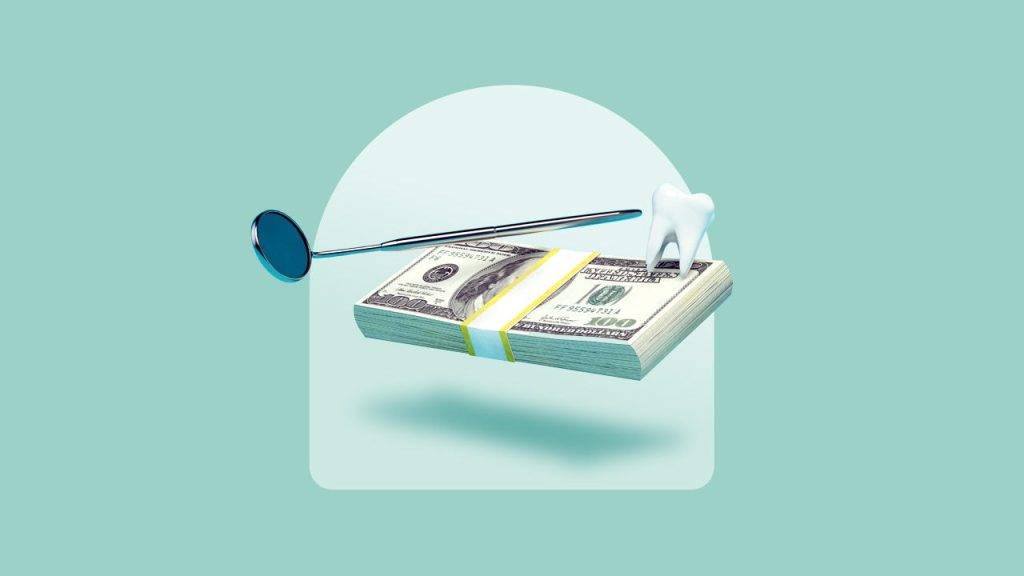Key takeaways
- You can make anywhere from $140,000 to more than $300,000 per year as a dentist, but it generally isn’t the highest paid in the medical field.
- The current national average salary for dentists is $179,210, according to the Bureau of Labor Statistics.
- Consider shadowing a dentist and auditing university classes to gauge if a career in dentistry is right for you.
- Dentists who work in the public sector may qualify for loan forgiveness programs.
Dentistry is a lucrative career, but you probably won’t earn the highest-level dentistry pay right out of school. A few different factors affect how much dentists make a year, including experience level, location, specialty and employment sector.
If you’re thinking about a career in this high-paying field, here’s what to know about the starting salaries for dentists, incomes for various specialties and whether the pay is worth dental school debt.
What is the average dentist salary in the U.S.?
The latest data from the Bureau of Labor Statistics (BLS) show that the annual national dentist salary is $179,210. Dentists working at private practices can earn even more. The American Dental Association (ADA) found that the average net income in 2023 was $191,750 for general dentists and $323,780 for specialists.
You may be wondering what dentists do to get such a high salary. General dentists focus on oral care while teaching patients how to optimize their dental care routine. Dentists can also work as specialists, focusing on areas such as anesthesiology, endodontics, oral and maxillofacial radiology and surgery, orthodontics and oral pathology.
What determines a dentist’s salary?
The typical income in this line of work depends on several factors. Below are a few that can affect dentistry pay.
Location
The city and state where you practice have a significant effect on how much you’ll earn as a dentist. For example, according to state-level data from BLS, the mean general dentist salary in Illinois is $184,490, while Wyoming- and Vermont-based dentists earn $154,030 and $240,740, respectively.
Even wages between different areas in the same state can vary considerably. For example, in California, general dentists in the San Francisco metropolitan area earn a mean wage of $227,090 per year, while Los Angeles dentists earn a mean wage of $174,180.
Top-tier salary states
| State | Annual mean wage |
|---|---|
| Vermont | $240,740 |
| Delaware | $228,740 |
| Minnesota | $224,700 |
| North Dakota | $224,300 |
| Maine | $224,080 |
| Source: BLS |
Middle-tier salary states
| State | Annual mean wage |
|---|---|
| Indiana | $209,500 |
| Oregon | $209,670 |
| Georgia | $203,300 |
| Michigan | $202,390 |
| Alaska | $202,250 |
| Source: BLS |
Lower-tier salary states
| State | Annual mean wage |
|---|---|
| West Virginia | $171,380 |
| South Dakota | $166,690 |
| Utah | $148,860 |
| Nevada | $146,480 |
| Mississippi | $143,020 |
| Source: BLS |
Dental specialty
Dental specialties require two to six years of additional residency training. The ADA recognizes 12 dental specialties, all of which have higher salary potential than a career as a general dentist. Specialists stand to earn among the top dental incomes, but this requires more years of education and potentially more student loan debt to complete training in an accredited program.
Salary by dental specialty
| Specialty | Average annual salary |
|---|---|
| Oral and maxillofacial surgeon | $368,879 |
| Oral and maxillofacial radiologist | $344,970 |
| Orthodontist | $309,402 |
| Prosthodontist | $330,066 |
| Dental anesthesiologist | $393,215 |
| Oral pathologist | $337,500 |
| Source: ZipRecruiter |
Years of experience
The number of years you’ve practiced as a licensed dentist can also influence your dentistry pay. With more experience, you’ll qualify for more competitive salaries, and you may be able to accept more patients into your practice.
General dentists with one to four years of experience command an average salary of $149,000 compared to the $172,000 average for those with ten to 19 years of experience, according to Payscale.
Public sector vs. private practice
The industry you work for affects your income. For example, the annual mean wage for dentists in a dental office is $178,300, according to BLS data, while dentists in government can clear an annual median salary over $213,000.
Dentists who choose to work as specialists in private practice can earn even more. To illustrate, orthodontists earn $239,200 or more, and prosthodontists can earn $239,000 or more.
How do dentist salaries compare to other medical specialties?
Dentists are well-paid, but there are other high-paying opportunities in the healthcare sector. Here are some examples of other medical professionals who make more on average than dentists:
Salary by medical specialty
| Career | Average salary |
|---|---|
| Anesthesiologist | $336,640 |
| Surgeon | $354,760 |
| Obstetrician and gynecologist | $281,130 |
| Family medicine physician | $256,830 |
| General pediatrician | $222,340 |
| Source: BLS |
Is becoming a dentist worth it?
Consider the return on investment (ROI) for attending dental school. Are the costs of attending dental school really worth the expected salary?
Dental school graduates from the class of 2024 had an average student loan debt of $312,700, according to data from the American Dental Education Association. This debt total accounts for unpaid undergraduate loans and loans accumulated during dental school.
With an average annual salary for dentists of $179,210, you will make as much as you spent after two years. The earning potential from a dentistry career is competitive, but you’ll also need to factor in the costs of your education if you’re considering whether this career path is worth it.
Here are some tips to help you make an informed decision:
- Shadow a dentist: A shadowing program lets you get a glimpse of what a dentist does day to day, and it’s also a plus on your dental school application.
- Talk to a dental student: You’ll face hours of daily coursework, studying, lab training and more. Talk to a current dental school student to learn how they manage the demands of dental school.
- Ask yourself if you’d work in the public sector: Dentists who serve in the public sector may earn less than those in the private sector, but they may also qualify for federal loan forgiveness, like Public Service Loan Forgiveness (PSLF) and state repayment programs.
Bottom line
Dentistry and its related specialties can be a helpful and lucrative career. Keep in mind that if your main objective is a high salary, other fields can pay more.
Your overall earnings potential will depend on where you live and practice, your years of experience and what kind of dentistry you plan to pursue. Dentists in private practice sometimes make higher incomes than those in public service but may not be eligible for federal student loan forgiveness such as PSLF.
Read the full article here









